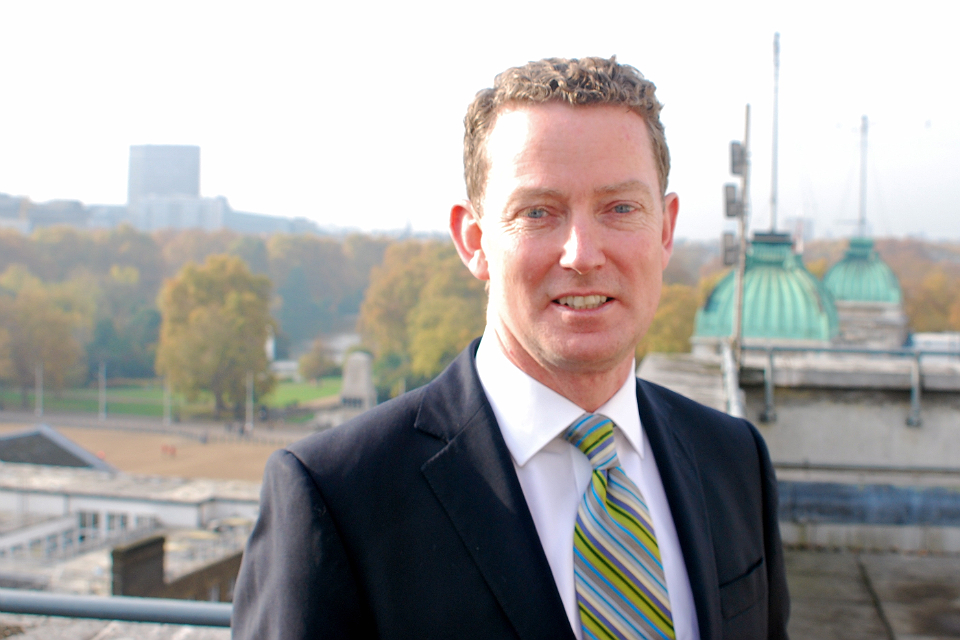Greg Barker's opening speech to the European Future Energy Forum - 20 October 2010
Check against delivery Thank you Ben [Caldercott] and good morning. It’s a pleasure to be on this panel with such distinguished colleagues…

Check against delivery
Thank you Ben [Caldercott] and good morning. It’s a pleasure to be on this panel with such distinguished colleagues - and raise the debate on such a timely topic.
Our ambitions are clear, we want the UK to move to low carbon society, and we intend for Britain to be a world leader in the move to a green economy.
We’re committed to a game-changing agenda and a radical overhaul to our climate change programme.
But we’re in the greatest energy challenge of our life time. Significant investment must be ploughed into the network, roughly £200 billion over the next 10-15 years.
Overall we need $46 trillion globally by 2050 [IEA source] of investment for a substantial change to the levels of emissions that we produce.
We must continue to ensure our energy security, and with another difficult winter looming - make sure the lights stay on.
At the same time we have surfaced out of a recession, and we must tame the worst peacetime deficit since the 1930s.
And that’s the scale of our challenge.
But from these obstacles we must encourage a new green industry to emerge. That’s something this Government is dedicated to.
EMR
In July during the Annual Energy Statement, we announced a consultation on Electricity Market Reform, later this autumn.
The investment challenges we face, as we move past the next decade will strain the current system. So we need to profoundly re-think it.
The reform aims to change the way that market design choices affect investment decisions.
The current market arrangements simply won’t deliver the investment in the low carbon energy mix that we need to develop over the coming decades.
A framework to give a solid carbon price is an important first step in providing the incentives for investment that we so urgently need.
Investors need certainty in the environment they are investing in. We must look to build a new kind of economy, to ensure global competitiveness, and protect ourselves from price shocks.
It something I like to call TLC.
Transparency.
Longevity.
And Certainty.
Protecting investment
There are four objectives we need to reach to deliver and protect this investment.
Firstly there is security of supply. We must ensure capacity, diversity and we must become more resilient to external shocks.
Secondly, decarbonisation. The cheapest energy is of course the one we don’t use and the argument does not solely lie with supply.
Thirdly, renewables. By 2020, 15 per cent of our energy needs to come from renewable sources but the future of renewables rest largely with the investment of businesses. Carbon Capture and Storage and new nuclear - without public subsidy - will all feature in our future energy mix.
And finally, cost. We have to operate all this within a tight fiscal environment and so value for money will go a long way in how we deliver.
Green Investment Bank
But there is a wider issue surrounding investment. And that is removing its barriers.
It’s why we established the Green Investment Bank because we are determined to address those barriers.
So much of the green technology around is immature and this investment will help its evolution. But the focus will be on working with the market; supporting investment where the market fails.
It could invest in technology such as carbon capture and storage, electric vehicle charging infrastructure, hydrogen vehicle infrastructure and district heating.
EU
Bringing forward our competiveness is one the reasons why the UK is clear on about the EU’s commitment to a greener future - we believe that a 30 per cent EU emissions reduction target for 2020 is essential.
Moving to 30 per cent will set the tone throughout Europe that our future is very much a low carbon one.
And, in light of the recession, it is not expensive to achieve. It would cost just 0.1 per cent of EU gross domestic product more than the original pre-recession estimate of achieving 20 per cent reduction. And those cost estimates fall even further if oil prices rise.
It’s achievable, right for the climate and right for the economy.
Conclusion
So to conclude, we must strive to lead this movement. Doing so with a clean energy sector will generate new jobs, new opportunities and ensure continued economic development.
With a world leading industry, with world beating research - already worth over £3 trillion, this must be seen as a key area of opportunity for the UK’s future growth.
Thank you, and I look forward to hearing the views of the other panellists.